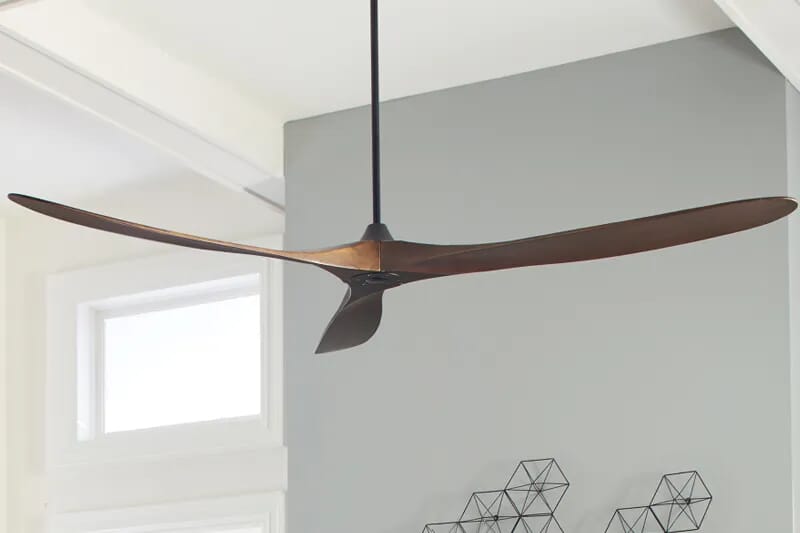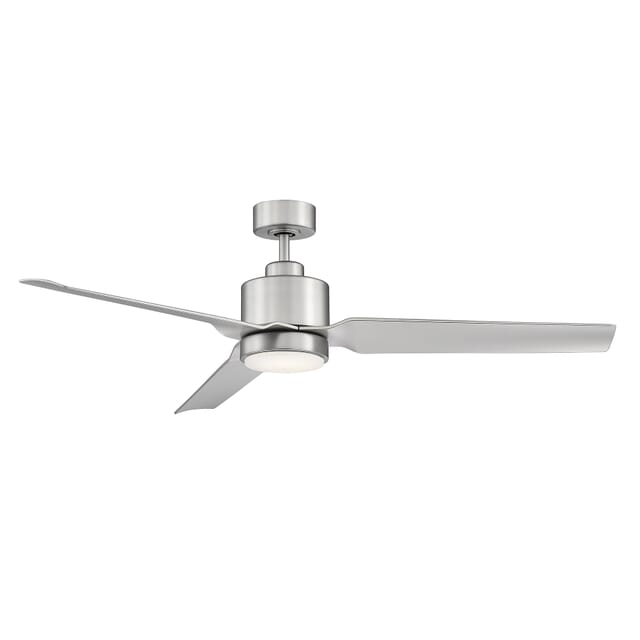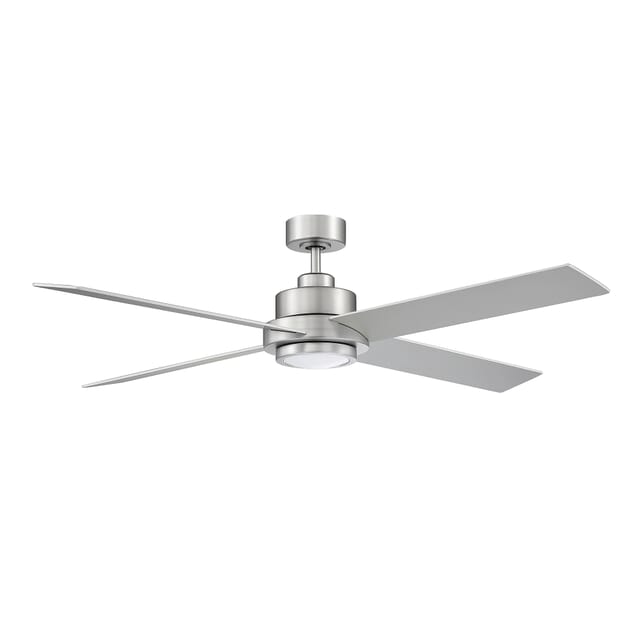Ceiling Fan Motor Types: AC vs. DC

Ceiling fan motors are available in two varieties: AC and DC. (No, not the rock band!) What’s the difference between the two types of ceiling fan motor? Which one is a better fit for you?
First, let’s learn about fan motors.
How AC ceiling fan motors and DC ceiling fan motors work
AC means alternating current and DC means direct current. The difference between the two is in how the motors handle the electrical current they receive from the wiring in your ceiling.
AC motors use the supplied power from your electrical wiring directly, regulating speeds by controlling the frequency of the current.
DC motors convert the supplied power from your ceiling, regulating speeds by controlling the electrical current. (We know it’s a little confusing—alternating current motors handling power directly, direct current motors converting the power!)
Let's look at the advantages of both ceiling fan motor types now.
Advantages of AC ceiling fans
- Less expensive than DC motors
- Great reliability
- Good energy efficiency
- 3-speed and 4-speed options are common
Advantages of DC ceiling fans
- More efficient than AC motors
- Virtually silent operation
- Offers more power and torque while using less energy
- 6-speed options are common
AC ceiling fans are a smart choice for budget-conscious shoppers while DC ceiling fans are a smart choice for people focused on efficiency and energy savings. Many brands, including Kichler, Fanimation, Modern Forms, Craftmade, Hunter and Casablanca, offer DC fans.
Plus, the smaller size of DC motors means that ceiling fan designers can create more compact and unique looks. If you're interested in out-of-the-box ceiling fan designs, those will likely use DC motors.
While AC ceiling fans use more energy than their DC counterparts, neither type uses an enormous amount of energy, especially compared to how much energy an HVAC system uses.
Still not sure what type of ceiling fan motor is right for you? Let’s talk dollars and cents.
Ceiling fan energy guides
Ceiling fans have a Ceiling Fan Energy Guide with 3 numbers: airflow, electricity use and airflow efficiency.
Airflow is measured in cubic feet per minute (cfm). The higher the airflow number, the more air is moving.
Electricity use tells you how many watts of energy the ceiling fan uses. (This measurement does not include ceiling fan lights.)
Divide the airflow by the electricity use to get the airflow efficiency. The higher the airflow efficiency, the more efficient the fan.
Let’s compare two similar ceiling fans, one with an AC motor and one with a DC motor.
Flynn's ceiling fan energy guide numbers: 5722.34 CFM, 50.76 watts, 112.73 CFM per watt
Caleb's ceiling fan energy guide numbers: 6034.25 CFM, 31.83 watts, 189.58 CFM per watt
As you see, Caleb is more efficient--it has more airflow, uses less electricity and has better airflow efficiency. However, Flynn also has great numbers and is an excellent budget option. As mentioned above, is still very efficient compared to air conditioners.
Cost of AC motors vs. Cost of DC motors
Let's go to this Energy Use Calculator to figure out the cost of using Flynn and the cost of using Caleb. We’re using the calculator’s default settings of 3 hours a day at 10 cents per kilowatt hour, but you can change those settings to fit your usage and local energy cost.
Flynn costs $5.56 per year. Caleb costs $3.49 per year.
Because people tend to keep ceiling fans for about 10 years, let’s multiply those energy costs by 10. That gives us $55.60 for Flynn and $34.90 for Caleb. You can see how a DC motor gives you energy savings over time!
Of course, you do have to keep the upfront cost of purchasing the fan in mind, too. DC fans generally cost more than AC fans. So, if the upfront cost is the single most important factor for you (which is valid!), then you might pick Flynn and still enjoy an efficient look. But if you're OK with paying more up front, you might pick Caleb.
In the end, the AC vs. DC ceiling fan decision is yours to make and can be based on many factors. The information above will help you make a well-informed decision. If you need further advice, feel free to call us at 1-866-688-3562 or reach out on social media.
Emma Harger-Young - LightsOnline.com


